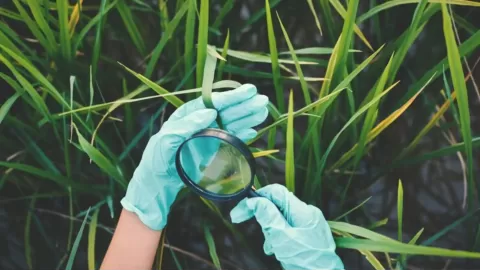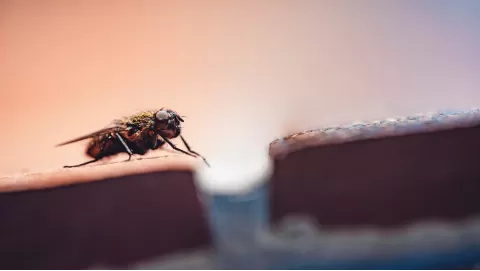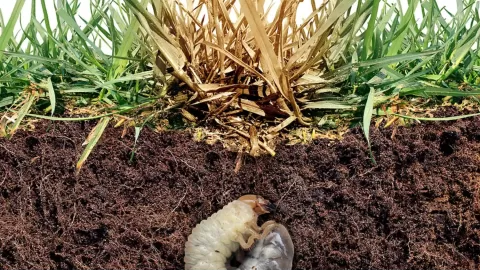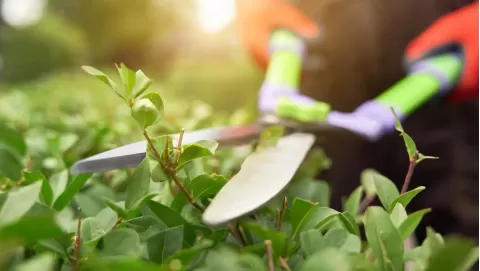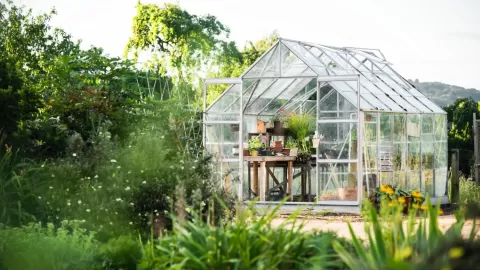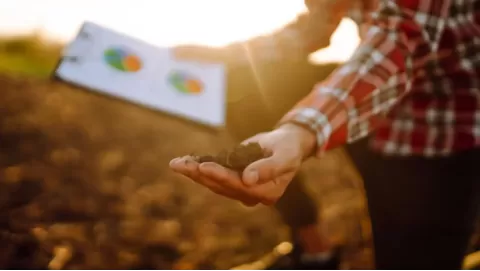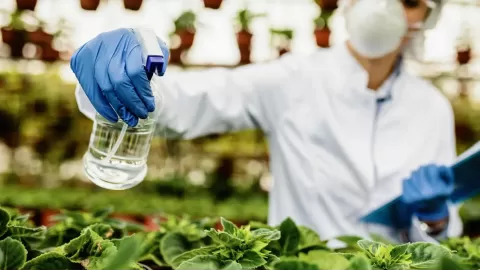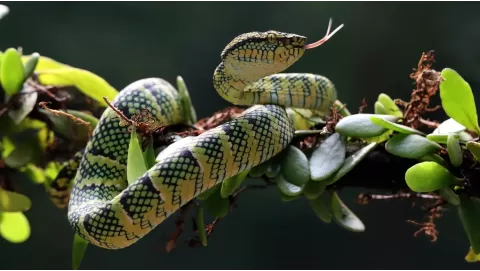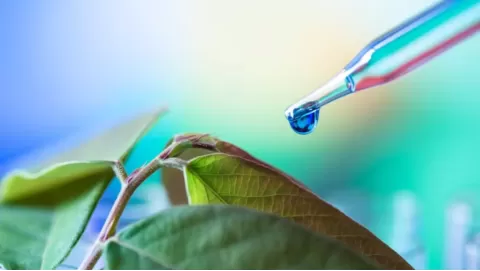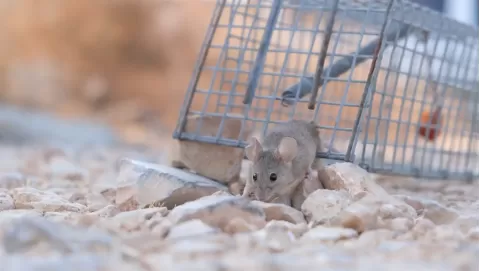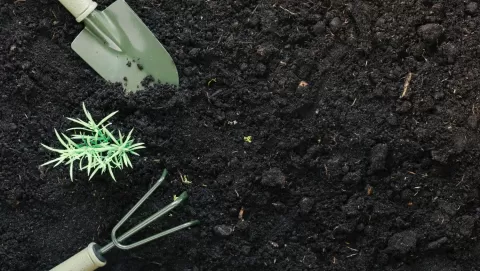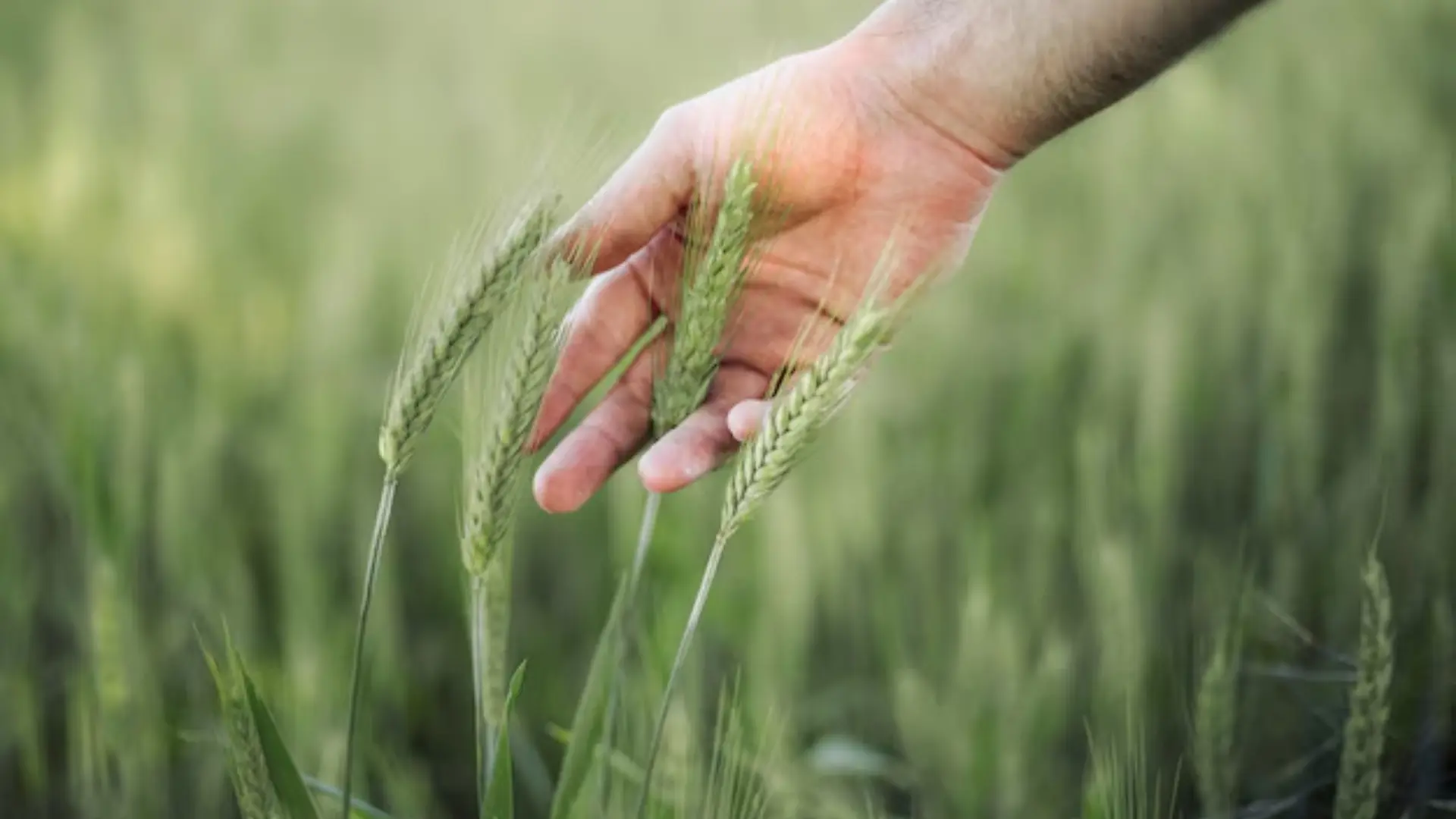
Natural Crop Protection and Soil Enrichment for Sustainable Farming
In modern agriculture, sustainability is more than just a fashionable buzzword — it’s a vital requirement. As farmers struggle to deal with climate change, soil depletion, and the increase in chemical resistance among pests, natural, environmentally-friendly solutions are in high demand. Instead of dousing fields with a never-ending mist of chemicals or praying for a handful of well-timed rainstorms, growers are adopting more intelligent strategies based on biology.
- What: Natural pest control and soil enrichments to enhance crop yields and sustainability (beneficial insects, nematodes, beneficial microbes).
- Ideal For: Farmers looking to reduce chemical use, promote healthier soil, and better manage pests, while developing and practicing environmentally friendly farming for long-term success.
- Key Players:
- Bioline AgroSciences: Leading the way with biological control. Enhancing the natural balance. Bioline AgroSciences supplies the best in beneficial insects and mites to growers for natural pest control on their crops.
- BactiGrow: Promotes soil health with good bacteria that will strengthen the roots and help with nutrient uptake.
- Tip: Practice biology, enrich the soil for a more resilient farm ecosystem, reduce reliance on harmful chemicals, and foster sustainable agriculture.
Natural crop protection and soil-building practices are fast becoming the cornerstone of successful, sustainable farm operations. Farmers are discovering through healthier plants and stronger ecosystems, that “working with nature” is indeed better than “fighting against it.” Leading this green revolution are companies such as Bioline AgroSciences and Bactigrow, which use beneficial bugs and bacteria to help farms not just survive, but to thrive. It’s the opening chapter of an exciting new era in agriculture, and it starts with nature’s own secret weapons.
The Growing Need for Sustainable Agricultural Practices
Feeding the world and protecting the earth have always been a delicate balancing act in agriculture. Today, that balance seems more fragile than at any time. Decades of chemical-dependent agriculture have left soils depleted, waterways contaminated, and beneficial insects fighting for survival.

Over the past few years, a new generation of farmers has recognized that the old ways are in need of a major upgrade. Sustainable farming practices aren’t only better for the planet; they’re also essential for long-term survival. Healthy ecosystems contribute to healthy crops and healthy bottom lines.
Integrating crop rotation into sustainable farming practices further enhances soil health and insect pests management, complementing biological crop protection and soil enrichment strategies for long-term agricultural success.
Reducing Chemical Dependency in Agriculture
Overuse of pesticides and non-organic fertilizers has degraded crop land across the globe. Chemicals not only disrupt soil biology and damage water quality, but they also kill off the pollinators and beneficial insects that are essential for crops to thrive.
Growers are changing that today. IPM techniques combined with organic soil amendments are replacing "spray and pray." Farmers are finding that by calling off the chemical siege of the past half-century, they can restore balance and resilience to their land.
Embracing Biological Crop Protection
This is where biological crop protection comes in: nature’s original security system. Instead of poisoning pests, a growing number of farmers are feeding insects and nematodes and breeding predatory insects and strains of weeds to protect their crops.
This is an ecological way to control pests, and it’s healthy for the entire farm’s habitat. The organic intervention also offers a natural solution that works with nature in order for the crops to survive without the use of harmful chemicals.
Restoring Soil Health for Long-Term Success
Soil is more than just dirt; it’s a living, breathing ecosystem that supports everything people grow. Years of chemical applications and little rotation or soil improvement have left many soils barren of organic matter and filled with harmful disease pathogens instead of friendly microorganisms.
Restoring soil health involves investment in biology, organics, and natural conditioners. By building up soil fertility and health without synthetic inputs, farmers ensure plants are healthier and more robust, and that resistance is there to carry farmers through future outbreaks or other stressors. The health of the soil is crucial for sustainable agriculture; reestablishing it brings continued gains to both the environment and the sustainability of the farmer.
Biological Crop Protection with Bioline AgroSciences
Since 1979, Bioline AgroSciences has been a distribution company, leading in sustainable agriculture, offering its customers natural products for pest control using biological control agents. Bioline, which works with growers to keep crops healthy by reducing dependence on chemical pesticides, operates in over 30 countries.
Natural Enemies to Combat Crop Pests
There is a full range of beneficial insects and mites for biological control against harmful pests in crops from Bioline AgroSciences. For instance, the Anderline With Bran-Vermiculite 25000 in 1L Tube illustrates the capacity of Amblyseius andersoni, a predatory mite that feeds naturally on spider mites and other pestilent plants.
Key advantages include:
- Versatile pest control across all life stages: eggs, larvae, and adults.
- Compatible with cold temperature tolerance and heat temperature tolerance from 42 °F to 104 °F.
- Rapid reproduction, enabling quick establishment and sustained protection.
- Protective action, to work also in case of pest level being low or even absent.
Thanks to Bioline’s advanced application techniques, it is now straightforward to bring these natural guardians into your crops, whether in a greenhouse, tunnel, or outdoor field, and create a successful, pest-resistant environment without upsetting beneficial ecological processes.
Integrated Crop Management for a Sustainable Future
Bioline AgroSciences isn't in the business of pest control only. Their mission is to support integrated crop management (ICM) systems with biological controls and environmental stewardship. By continuously investing in research, partnerships, and farmer education, Bioline is assisting agriculture to move to a more resilient, chemical application-reduced model. Supported by technical guidance and field-tested solutions, growers can protect their crops more sustainably, guaranteeing productivity now and in the future.
Building a Foundation for Plant Health
A healthy crop starts with a healthy foundation- that is, soil, water, and air are all important factors in determining the health of a plant. When these compounds are in balance, plants flourish, producing well and being healthy. Without these basics, crops are more susceptible to pests, diseases, and environmental stress. This is not only about what you are doing to the plant, but also what is around in the environment.
The Importance of Soil, Water, and Air Quality
Soil is the primary nutrient provider for the plant; however, soil is also a place where billions of beneficial microorganisms reside. The device also needs water to transport the nutrients, which must be clean and plentiful. Air quality is an important, yet commonly overlooked, vital part of healthy plant respiration. Combined, these elements set the stage for plant growth, promoting robust, healthy crops. It is additional capacity that plants can access to resist stressors like drought and disease.
Early Intervention Strategies for Stronger Crops
The key to robust plant health lies in early intervention. Prevention, as opposed to waiting to address an issue after it has occurred, allows growers to avoid costly hang-ups. Using techniques like organic soil supplements, watering, and pest management will help make your plants stronger from the beginning. Healthier plants are better able to deal with adversity, whether environmental or disease-related, so early management is key.
Soil Enrichment and Plant Vitality with BactiGrow
Although protecting plants above ground is crucial, enriching the soil beneath the ground is just as crucial to the success of regenerative farming. That's where BactiGrow makes a remarkable impact.
BactiGrow premium formula contains selective Bacillus specifically chosen to enhance root growth, increase nutrient uptake and improve soil structure. By releasing the innate power of your soil microbiome, BactiGrow enables your plants to grow more productively and protectively, even when conditions are not ideal.
Benefits of Using BactiGrow
- Boost Growth: Good bacteria can also work great for root and growth.
- Enhanced Nutrient Uptake: Plants absorb the nutrients released by this neem cake, meaning less fertilizing.
- Resistance to Diseases: The root in good health is better able to resist diseases.
- Indoor and Outdoor Compatibility: Great for houseplants, gardens, farms, and commercial greenhouses.
Boost the volume of beneficial soil bacteria in your garden by adding BactiGrow, producing a robust root-zone that is resistant to infection from pathogenic organisms, so your plants can grow strong and solid roots.
Integrating Biological Solutions into Modern Farming
The agricultural industry is undergoing a modern renaissance and biologicals are leading the charge. Farmers are moving away from the old-time chemical inputs, some toward bio-based inputs that do no harm to the crops or land. Biological control agents (BCAs) and bio-based soil amendments are increasingly contributing to sustainable agriculture. When they consider natural systems, farmers can farm with rather than against nature and achieve a more resilient crop, a more robust form of pest populations and disease control, and a healthier environment.
How Biologicals Complement Existing Farm Practices
The biological solutions are not substitutes for the way the farm has operated for generations; they are its complements. Today’s farm practices are more amenable to biologicals, but they are also not against chemical protectants to save their crops. For example, take something like integrated pest management (IPM), an idea developed decades ago, and that relies on things like good bugs (ladybugs, etc.) that eat the bad bugs so growers don’t spray chemical pesticides.

There are a number of biologically active soil treatments that have been developed and that are used as soil applications, frequently as composted teas, which stimulate soil fertility and biological activity from their many cohorts of organisms that compose fertilized soils. But on farms, old-fashioned and biological ways of keeping that at bay can not only bulletproof the crops but also make the environment itself healthier, so it’s really a win-win.
Balancing Yield Goals with Eco-Friendly Methods
The eternal conflict for farmers is high production versus sustainability. This fine-tuning can be largely restored naturally. Farmers were free to use artificial fertilizers and pesticides for some short-term gain, but at long-term environmental cost. Biofertilizers are soil microbial formulations, high in microorganisms, and also provide a similar function where they build soil biology, plant resilience, and may reduce chemical use so that the farm can become long-term productive more sustainably. Farmers can grow without creating more damage to nature via nature-based solutions.
The Connection Between Natural Pest Control and Soil Enrichment
Good, healthy soil is important for the crops, of course, but it’s also important for managing pests. Soil health dictates which plants will grow in it and how resistant they will be too pests. Active soil is alive with organic matter and thriving life, teaming with an array of diverse, active, beneficial microorganisms; that's a worked, living ecosystem that encourages stronger, less disease-prone and pest-prone, more vigorous plant growth. Soil quality also directly determines whether the farm will be able to get the level of natural pest control.

How Healthy Soil Supports Biological Pest Management
Good soil is the key to effective biological pest control. Farmers tend to a vibrant and healthy soil ecosystem so that plants can defend themselves from pests. Predatory mites and nematodes in the soil are the friend of the struggling plantings and keep the pests in check, leading to less chemical assistance. Healthy soil also means healthy plants, and healthy plants can resist pest pressure. It is this combination of soil health and biological control that provides a more sustainable model of farming.
FAQs
1. What is biological crop protection?
Biopesticides, which are formulated from living organisms such as beneficial insects, nematodes, and microorganisms, are used to manage insects or diseases. This method is an environmentally-friendly alternative to synthetic chemicals and encourages the development of a healthier farm.
2. How does soil health impact pest control?
Natural pest control is a soil that has been made to be actively healthy and full of an ecosystem or beneficial biology fighting pathogens and harmful microbes that can help in supporting a healthy plant, and that can help in keeping pests in check. If the soil gives crops a healthy home, then fewer chemical pesticides can be employed by the farmer.
3. Can biological solutions be integrated with traditional farming practices?
Yes! These input materials are consistent with current agricultural production methods, including IPM and organic soil additives, for instance. These strategies and techniques should be a supplement to the traditional methods for keeping the crop healthy, minimizing chemical application, and the sustainable development of agriculture.
Conclusion
Natural crop protection and soil enrichment are the future of farming for both profitability and sustainability. With biologicals, farmers are able to create profitable systems that thrive independently of broad-based synthetic inputs. The application of these nature-based principles results in increased crop health as well as crop yield and a healthier, more abundant world for every future generation!
From protecting crops through beneficial insects to regenerating soil, the move into sustainable farming is not a movement; it’s a necessity for the future of farming. Thanks to these environmentally-friendly solutions from Bioline AgroSciences and BactiGrow, it is now possible for farmers to work with nature and enjoy long-term success and sustainability on their farm.
Disclaimer: This material is for informational purposes only and should not be relied on for legal, medical, financial, or other professional advice.
Sources:
U.S. Department of Agriculture - Sustainable Agricultural Productivity Growth: What, Why and How
Research Gate - Soil Fertility, Biodiversity and Pest Management

.jpg?1745845647550)



